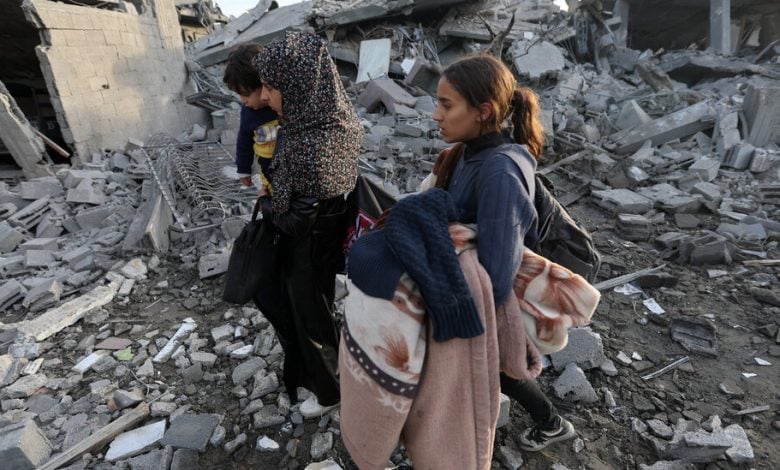U.S., U.N. and International Criminal Court Intensify Warnings Against Invading Rafah

The United States opposes an Israeli ground offensive into Rafah unless Israel provides for the safety of more than a million people now crammed into the city, a State Department spokesman said on Monday, adding to the Biden administration’s repudiations of the expected military action.
At the same time, officials of the United Nations and the International Criminal Court took a more absolute stand against the expected Israeli invasion of Rafah, in the southern Gaza Strip, warning of catastrophic consequences.
So far, however, the escalating international pressure on Israel to restrain its military campaign appears to have had little effect; the Israeli government has said repeatedly that it will send ground forces into Rafah to defeat Hamas. Prime Minister Benjamin Netanyahu has called for the military to draft a plan to evacuate civilians from the overcrowded city in order to minimize casualties, but international aid groups have said the evacuation of so many people is unrealistic.
“We do not support any military campaign in Rafah going forward as long as they cannot properly account for the 1.1 million people, by some estimates, who are in Rafah today, some of whom have already been displaced, some of whom have been displaced multiple times,” Matthew Miller, spokesman for the State Department, told reporters on Monday. “We think there needs to be a credible plan that they can actually execute before they undertake any military campaign in Rafah.”
The White House has conveyed a similar message several times in recent days. On Sunday, President Biden reaffirmed the view to Mr. Netanyahu during a phone call.
Stéphane Dujarric, the spokesman for the U.N. secretary general, António Guterres, said on Monday that any incursion into Rafah would jeopardize the delivery of essential aid to a territory where food, water, medicine and shelter are in critically short supply, and where most people have fled their homes. Rafah contains the only border crossing between Gaza and Egypt, and that crossing is the primary portal for aid.
We are having trouble retrieving the article content.
Please enable JavaScript in your browser settings.
Thank you for your patience while we verify access. If you are in Reader mode please exit and log into your Times account, or subscribe for all of The Times.
Thank you for your patience while we verify access.
Already a subscriber? Log in.
Want all of The Times? Subscribe.
